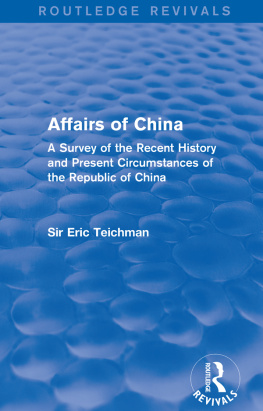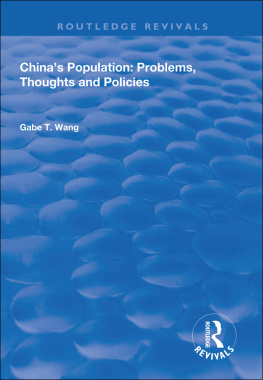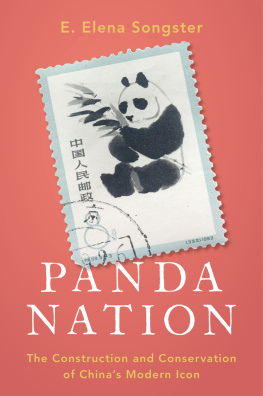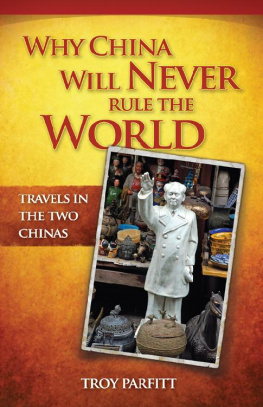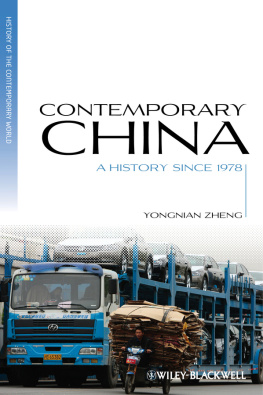First published 1938
by Routledge
This edition first published in 2016 by Routledge
2 Park Square, Milton Park, Abingdon, Oxon OX14 4RN
and by Routledge
711 Third Avenue, New York, NY 10017
Routledge is an imprint of the Taylor & Francis Group, an informa business
1938 Eric Teichman
All rights reserved. No part of this book may be reprinted or reproduced or utilised in any form or by any electronic, mechanical, or other means, now known or hereafter invented, including photocopying and recording, or in any information storage or retrieval system, without permission in writing from the publishers.
Publishers Note
The publisher has gone to great lengths to ensure the quality of this reprint but points out that some imperfections in the original copies may be apparent.
Disclaimer
The publisher has made every effort to trace copyright holders and welcomes correspondence from those they have been unable to contact.
A Library of Congress record exists under LC control number: 39000151
ISBN: 978-1-138-65893-6 (hbk)
ISBN: 978-1-315-62047-3 (ebk)
ISBN: 978-1-138-65895-0 (pbk)
The war in the Far East has drawn attention to the affairs of China. The author, retired in England after a lifetime in the East, found himself frequently consulted by his friends about the meaning of Far Eastern news. So he sat down to write what purports to be a true and objective account of Chinas recent history and present circumstances, an outline drawn from his personal experiences during the past thirty years, in the hope of rendering the news from China more intelligible to the uninformed reader of the daily Press. The thread which binds the story is the record of the efforts of the leaders of the Chinese people to build up a new China out of the ruins of the old; of their fight to claim for China a place of equality amongst the nations of the world; and of the development of the tragic but inevitable conflict between resurgent China and the ambitions of Japan. Most of the book was written during the last months of 1937; and the picture is that of Chinas circumstances at the time of her invasion by Japan. Now, after years of bickering, bullying on the one side, and half-hearted resistance on the other, the issue is finally and squarely joined; and, whatever the immediate result may be, whether Japan succeeds in overcoming the resistance of Nationalist China, or whether the Chinese hold out long enough to break the determination of Japan, or whether the struggle ends in stalemate, compromise and disillusion for both sides, the fate of British, American and European interests in China will be profoundly altered and a new era in the Far East opens for the world. Some of the questions here reviewed assume new shapes and forms; others represent chapters definitely closed by the event of war; all, or nearly all, are affected to a greater or a less degree. But an examination and understanding of the past help us to estimate and meet the new problems which the future holds in store.
.
It is not possible to plunge into a review of the affairs of China without some preliminary reference to Chinese history. But of all histories early Chinese history is the dullest and most uninteresting reading; due to the strange and unpronounceable names and the great gaps of language, time and space between the Chinese historian and the European reader. Assuming, therefore, some knowledge of the remoter background, this introductory chapter is devoted to a brief account of the genesis, growth and earlier misfortunes of the Republic of China, born on October 10, 1911, when the revolution against the Manchu Dynasty, which had been fermenting for years below ground, broke surface in the military rebellion at Wuchang, in the centre of the Yangtze Valley, politically and geographically the heart of China.
The decline of the Manchu Dynasty had begun a century before it disappeared in the revolution of 1911; and the weakening of the Imperial Government was hastened by the aggression of the western world. Since early in the nineteenth century Great Britain, France, Russia and the United States had been engaged in prising open to foreign residence and trade the closed doors of China and Japan. The Chinese, under their Manchu rulers, more conservative and less immediately adaptable to the impact of the West, resisted, and opposed the coming of the foreigner with guile and ill- directed force. From the wars, or punitive campaigns, of the forties and sixties of the nineteenth century there resulted the Unequal Treaties, of which the new China of to-day so bitterly complains. Britain and France, dictating terms of peace, compelled the Manchu Government of China to concede exterritorial rights, foreign-controlled treaty ports, a fixed five per cent import tariff and other special rights and privileges for the foreign merchant and resident in China. The other leading Powers demanded and received the same. The Japanese, at first subjected to similar treatment, soon shook themselves free from the domination of the western world; while China, to her great misfortune, remained in this semicolonial and subjected state.
.
Chinas defeat in the war with Japan in 1894 ushered in the period of the Battle of Concessions, the grimmest years of her chequered diplomatic history, culminating in the losses and humiliations of 1898. The European Powers had seemingly decided that the Chinese Empire was moribund and ready to disintegrate; and a ruthless scramble set in amongst them for coaling stations, leased territories, railways and spheres of influence. The story of these years of international aggression and intrigue in China, without parallel in modern history, is best told in Mr. Josephs admirable compilation Foreign Diplomacy in China (Allen and Unwin, 1928). Russia appeared as the chief villain of the piece, seizing Port Arthur and eating into Manchuria and China from the north. France, her ally and accessory, schemed to penetrate the southern provinces. Germany, cynically taking as her opportunity the murder of a missionary, staked out with threats and menaces her claims in Shantung province. And Great Britain, after first fighting strenuously for the Open Door, joined in the scramble, seized Weihaiwei and claimed the Yangtze Valley as her sphere of influence.

